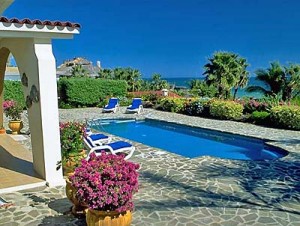Every time a new, disruptive concept gains enough momentum to threaten the longstanding incumbents in any given industry we see situations like what happened yesterday in New York. New York City officials have decided that NYC resident Nigel Warren should pay $2,400 for violating the city’s hotel laws for hosting a traveler 3 days in his apartment using Airbnb last fall. The case cites a recent 2011 law that makes it illegal for NYC residents to rent out their homes for a period of less than 29 days. 
Airbnb has been quick to get behind Nigel and released the following statement: “This decision runs contrary to the stated intention and the plain text of New York law, so obviously we are disappointed. But more importantly, this decision makes it even more critical that New York law be clarified to make sure regular New Yorkers can occasionally rent out their own homes.”
It’s not just New York that is struggling to appease all parties affected by the collaborative consumption revolution. Spain recently made headlines as they proposed a law that would restrict homeowners from renting out their properties as vacation rentals. During a time of extreme economic crisis, thousands of families have turned to renting out all or portions of their property to houseguests as a way to bring in much needed income. Technology has been so efficient in exploiting this niche market that no one has had time to update the laws allowing homeowners to temporarily rent out their space and pay the appropriate taxes on the new income. A 2012 report by La Caixa found that over two-thirds of the estimated 1.1 billion overnight stays in Spain were from unregistered accommodations. In other words, the black market for vacation rentals is costing Spain millions in tax revenue.
This is the cornerstone of the case being made by the hotel industry, as they have the most to lose in this wave of peer-to-peer home swapping. Hotel lobbyists are quick to point out that sites like Airbnb are in breach of the law as they swipe billions of dollars off the income statements of hotels around the world. They also note the health code of private rentals is largely unregulated and poses a risk to travellers unaware of dangerous hazards in the places they stay.
Up to this point, Spanish law has allowed private homeowners to rent their space to travelers on a short-term basis as long as they declare and pay income tax on the revenue. However, in these times of economic crisis, many renters have “forgotten” to declare this extra income and now face strict new laws. Ultimately, the laws will be enforced at the state level in Spain as the 17 regional governments decide how best to handle the new trends in their area. Some will require licenses forcing homeowners to meet the same regulations as large hotels in order to offer their homes as vacation rentals.
Casting a large “illegal” ban over the entire peer-to-peer vacation rental economy seems unlikely in Spain, or anywhere else for that matter, as consumers around the world are now accustomed to comparing hotel rooms to private apartment rentals to meet their travel needs. As a traveller, I demand the freedom to choose where and how I will spend my money during my vacation. However, I also want to make sure my family and I are safe during our travels, and ideally, the homeowner will also pay their fair share in taxes of the income I generate.
We’re likely to see many more battles like the one in NYC being fought on the front lines until legislation has time to catch up to these new business models. Where do you stand? Should all renters be held to the same standards as the hotel industry, or is there a middle ground where all parties can co-exist and let the fair market sort out the rest?







How long will it take for this to be settled in Spain (specifically Seville)? I’m planning a 3-week vacation and have a room in mind, but don’t want to see it go. Any suggestions on how to track this or who to ask?
Hi Patricia, as far as I know airbnb is alive and well in Spain right now. There have been some whispers of enforcing certain measures, mostly aimed at ensuring taxes are paid on private holiday rentals. If you’re worried about your particular circumstances you can always contact your government’s consular office in Sevilla.
For the US:
Plaza Nueva 8-8 duplicado
2nd Floor, Office E-2 No.4
41101 Sevilla, Spain
Telephone: (34) 95 421 8751
Facsimile: (34) 95 422 0791
Hours: 10:00 a.m. to 1:00 p.m.
E-mail: sevillecons@telefonica.net